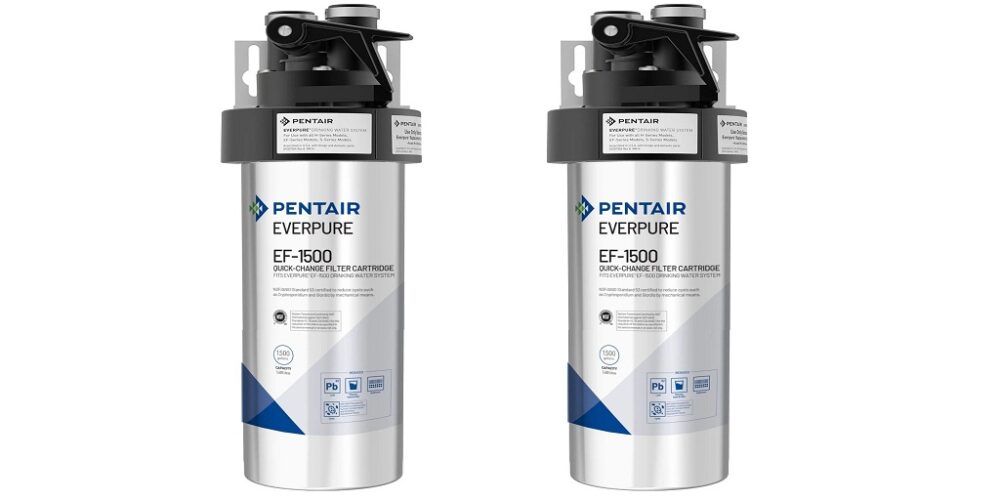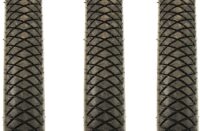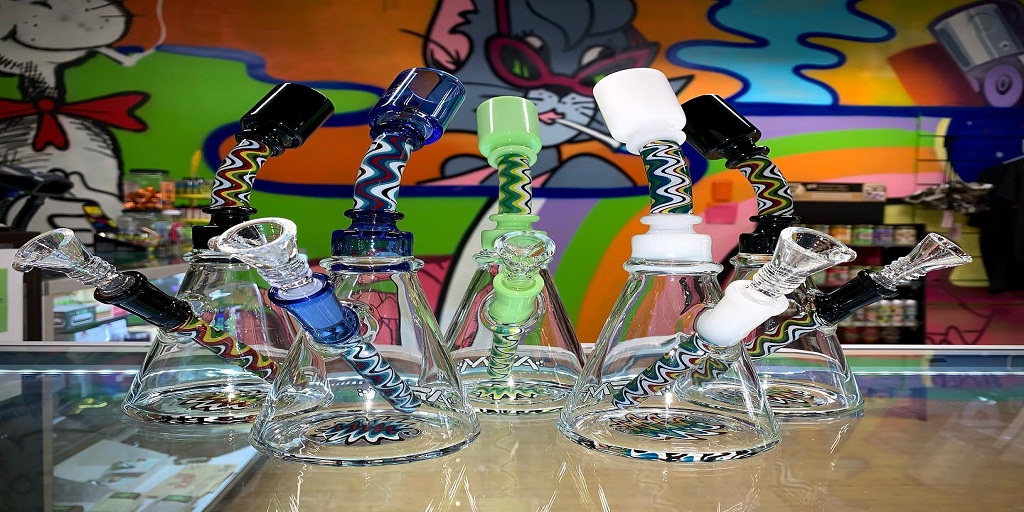While many homeowners take their drinking water quality for granted, residential water treatment systems are becoming more and more common. Having your own filtration system is one of the best ways to know that your water is safe to drink. If you have ever experienced poor water quality or you are just interested in taking charge of your water quality, then home filtration might be the perfect solution.
You are probably wondering if using a home water filtration system is really necessary, especially if your water seems to be fine. Your senses can only tell you if your water looks, smells, or tastes a little off. Sadly, our senses are not fine enough to pick up on all sources of contamination. Harmful contaminants like heavy metals can be present in drinking water without having a significant impact on taste.
Contaminants
There are a lot of different ways for drinking water to become contaminated. Water often travels miles between treatment plants and homes. In this time, a lot can happen. Whether a pipe has a leak or the old pipes are just leaching metals into the water, your clean drinking water can pick up contaminants before reaching your faucet. There are a few different general types of contamination and it is important to know what you are dealing with when considering a filtration system.
The most obvious signs of waterborne contamination are tastes and odors. If your water has a foul or rotten taste and smell, then your most likely issue is organic contaminants. When microbes are exposed to water with organic materials in it, they break it down and release a wide variety of compounds. Many of these compounds will create a rotten, sulphur like smell and taste in your drinking water. Organic contaminants can also cause turbidity or cloudiness, where particles suspended in the water make it appear cloudy.
Water that contains organic contaminants is also a potential source of biological contaminants like cysts. Cysts are like small eggs containing organic parasites. Diseases like giardia or cryptosporidium are both caused by these types of cysts entering the body through the consumption of contaminated water. A good filtration system can help ensure that these parasites are kept out of your drinking water.
If your water has a chemical smell that resembles bleach or pool chlorine, then the issue might be on the treatment end. Water treatment chemicals are designed to act over a period of time before being removed from your water. A variety of factors including connections, dead end lines, and breaks in water mains can all cause an imbalance in the levels of treatment chemicals in your water.
One thing that might surprise you is that most instances of chlorine taste and odor are actually the result of there being too little chlorine in your water. When chlorine concentrations drop below a certain level, the free chlorine that helps kill bacteria and neutralize organic contaminants converts to chloramines and chloro-organic compounds that produce the signature chlorine taste. This low concentration can be a result of increased bacteria or organic compounds that have demanded the use of more chlorine than usual. Luckily, proper filtration can remove these chloramines and chloro-organic compounds from your water.
As we mentioned, not all contaminants are so easy to detect as the ones that we have covered above. Harmful heavy metal contaminants such as lead can leach into your water from old pipes and can be undetectable even at dangerous levels. This makes lead a real hazard more anyone living in an area with old infrastructure. Testing your water is one way to get a look at whether or not you are experiencing these issues. Sadly water testing is only going to provide you with a snapshot of your water quality at any given moment. That’s why having a residential water treatment system is so important.
Pitchers
When most people think about an in house water filtration system, they probably imagine a filtered water pitcher. These plastic water pitchers have become an extremely popular option for households due to their low cost. Sadly, their ability to offer comprehensive water filtration is limited.
One of the biggest drawbacks to using one of these filters is their operating pressure. Water is poured into an upper reservoir, passes through a filter cartridge, and then filtered water is collected and dispensed from the lower reservoir. This design means that the only thing pushing water through the filter media is its own weight. Because water weighs less than 10 pounds per gallon, this is a pretty low pressure in terms of PSI.
So what does this mean in terms of filter design? In order for water to flow through a filtration cartridge using only gravity, the media inside that cartridge has to be loose enough to allow water to actually pass through the media. The loose media makes it more difficult to significantly reduce and remove harmful contaminants from your water.
On top of this, these filter cartridges also tend to be small and have a relatively small filtration capacity. Most pitchers can only hold a gallon or so of filtered water and the cartridge itself might only be able to filter about 40 gallons of water before the pitcher will require a replacement cartridge. For many households, this means that a new cartridge will be required every month in order to maintain consistent water quality. The cost of these frequent cartridge replacements can quickly add up over time and make these systems expensive to use.
Finally, when considering any filtration system you need to consider the labor involved in its use. For filter pitchers, there is a lot of labor going into filtering water despite the low payoff in quality. Most filters will need daily refillings and monthly cartridge replacements. Between uses, these pitchers also typically take up a large amount of space in your refrigerator.
Faucet Filters
One step up from pitchers are faucet filters. These filters hook directly onto the end of your faucet, filtering water right before it is dispensed. Many of these filters have the option to divert the water flow through the filter cartridge for drinking or to continue to use your water normally for cleaning tasks. The main consideration when it comes to design with these filters is to keep them as small as possible, but many of these filters still end up being somewhat bulbous.
Because these filters are hooked up to your faucet, they are able to operate under pressure. Home water lines operate at around 40 pounds per square inch of pressure, far more than pitchers are designed to operate under. This means that their filter cartridges can use significantly finer media and produce superior water quality.
While these filters are definitely more efficient, they come with their own set of issues. For one, most sinks are not designed with these filters in mind. That means that they often have to use universal adapters that will not always form a secure seal. In some cases, they may not fit at all. Leaks can also be a common issue, especially over time.
Sadly, on a long enough timeline, most faucet filters will have difficulty producing a secure seal. Their small size also means that filter changes may have to be performed regularly, which can add up just like with pitcher based systems. While they will definitely provide better filtration quality than a pitcher, they are still far from the best residential water treatment systems.
Under Sink Filters
The last type of filter system that we will be looking at is under sink water filters. As their name suggests, these filters are designed to mount underneath your kitchen sink. This has a few distinct advantages. First off, your water filter is out of the way. No worrying about fridge space or having to add an odd bulbous apparatus to the end of your faucet. These filters operate out of sight and out of mind and they can be larger due to the amount of space available under most sinks.
On top of this, these filters are also designed to operate seamlessly with your home’s water line. Unlike the ends of faucets, the connections used to hook up water are standardized. Under sink filters are designed to hook directly into your home’s water line in order to operate under pressure with less risk of leaks. The higher pressure being used also means that the large filter cartridges used in these systems can be packed full of filtration media. This gives them a significantly longer lifespan that cartridges used in other systems.
Everpure Water Filtration Systems
Over the years, we have seen a lot of different commercial and residential water treatment systems. We have chosen to offer Everpure water filter systems because they offer the ideal balance between efficiency and ease of use. Everpure systems use easy to install cartridges that are packed full of their proprietary Micro-Pure filtration media.
These cartridges are designed to help remove a wide range of contaminants. The carbon based filtration media has an incredibly high surface area, making it act like a sponge for particulate matter suspended in your drinking water. Everpure’s filtration systems are designed to remove contaminants as small as half a micron in size. That is ten times smaller than a single blood cell! To put it in more quantifiable terms, an Everpure filter cartridge can remove or significantly reduce the presence of contaminants that are one hundred times smaller than the width of a strand of hair. Activated carbon is also extremely efficient at pulling chemical contaminants like heavy metals and chlorine compounds from water, making it basically an ideal filtration material.
All of the Everpure home filtration systems that we carry are certified by the National Science Foundation, an independent government agency that performs scientific tests on consumer products. These certifications mean that these filters are certified to remove certain harmful contaminants like biological cysts or lead.
On top of being effective, these filters are also easy to use. You can install one using only a few basic hand tools with no prior plumbing experience needed. For most Everpure models, you will have to add a small air gap faucet to your sink area to serve as a filtered water dispenser. There are a wide range of small faucets on the market so it is easy to find one that will match your kitchen. Installing a new faucet will require adding a hole to your counter or sink in order to install this second faucet.
If you do not want to deal with the hassle of installing an additional fixture, then one of our Full Flow drinking water systems is the perfect solution. These filters operate just like our standard Everpure filters, but the filtered water is dispensed using the cold water side of your current faucet instead of requiring the installation of a new fixture.
Once everything is set up, most of our filtration systems only need yearly maintenance in the form of replacing the filtration cartridge. This only takes a minute or so per year, though you may need to replace the cartridge sooner if you notice the flow rate from your system has decreased. This minute or so of maintenance is all it takes to enjoy having filtered water on tap at a fraction of the cost of buying water.
If you want to find the best residential water treatment system for your home, we have a great selection of Everpure water filters for you to choose from. We have worked with these amazing water filters for years and our team of filtration specialists are always happy to help our customers get the amazing results that they deserve.












